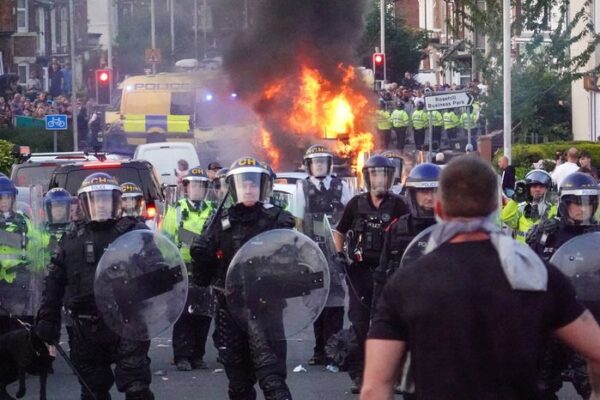Many in the UK have been inflamed by the way Boris Johnson appears to be destroying the democratic and constitutional credibility of the UK. Whilst others who support Boris will say he is doing what is necessary for Brexit, the manner in which Boris is eroding our democracy is more to do with the future of his role as Prime Minister and his party winning the next election, and not much to do with Brexit.
To be plain, Johnson is not doing this for the selfless cause of the “will of the people”, but rather for his own career and legacy. He has everything to lose and as we have seen, is willing to do everything to win it all.
Here’s 5 ways in which Boris has tried to swindle our democratic system for personal electoral gain.
1. No. 10 confirms they called for an early General Election to suppress the young vote
The Times reported that the Boris Johnson’s team picked the 15th Oct because it would mean that campaigners would have no time to get people to register to vote, especially young voters and students who will need to re-register to vote if they live in a University campus away from home.
Young voters are Labour’s main voter base, and helped turn constituencies such as Canterbury in 2017 that has been held by the Tories for centuries. So it’s no wonder that Johnson, Cummings, and their team would take steps to deprive young voters their voice.
2. Tory electoral reform knowingly led to denying millions of their vote
Back in 2016, the Tory government changed the voting registration to Individual Electoral Registration (IER), despite the fact it could leave at least 800,000 legitimate voters of the electoral roll and denying them a vote. They were warned that this number would grow and would be massively disenfranchising.
On the 26th September 2019, Valarie Vaz, acting as Shadow Leader of the House, made the following statement:
“I would be grateful if the Leader of the House could provide time for a debate on the Electoral Commission report, which estimates that between 8.3 million and 9.4 million people in Great Britain who are eligible to be on the local government registers are not correctly registered, and that there are between 4.7 million and 5.6 million inaccurate entries on those registers.”
That’s a total of 13 million to 15 million unable to vote, up from just 800,00 in 3 years. And it’s becoming clear that the this is not just affecting student communities, but also BME communities too, which are again core Labour voters.
She goes on to say this is the first independent assessment since the Tories changed to IER, and is perhaps the reason why the government is so keen to have an election when the electoral records remains far from complete.
3. Boris Johnson secretly asked for a massive amount of user data to be tracked through government Brexit ads
Johnson ordered the government’s public internet service, GOV.UK, to collaborate with a platform that collects ““targeted and personalised information” to gather information the run up for Brexit.
Dominic Cummings reinforced this move by making sure that ministers, department heads, and political aides know that Johnson’s instruction is “TOP PRIORITY”.
Privacy campaigners, civil servants, policy makers, and opposition members have raised massive concerns in the way the data is being pooled, especially as it is not through normal and transparent means, but through secret orders.
“Secret orders are not the way to handle these complex policies that have generated huge controversies in the past,” Javier Ruiz Diaz, head of policy at the Open Rights Group, told BuzzFeed News. “We need consultation and public debate to build social consensus for any new gathering of personal data, including the appropriate safeguards.”
Once they have the data, there is absolutely nothing stopping No. 10 from using that data for the General Elections and have undue influence.
In fact, ongoing investigations are happening around how the use of political data is being used for political campaigns and not government services as they should be used.
As late as the 25th of September, Yvette Cooper stood up in the House of Commons and stated that civil servants are still flagging up the fact that the government is still pooling Facebook Data by Dominic Cummins’ directive.
4. Government Brexit propaganda distributed to 3000 UK schools
UK schools are meant to be political free, and at the very least, be party politically-free environments. On the 25th September, Stella Cressy MP asked the Prime Minister in Parliament:
“Earlier today parents in Walthamstow contacted, extremely concerned about the content of a presentation about the prime minister’s proposals and Brexit that had been broadcast on what transpires to be 3,000 digital noticeboards of primary schools around this country, without the consent of the schools.
“Given the amount of money this government is spending on Brexit adverts, can he at least reassure Walthamstow residents that in this instance it wasn’t his doing and give his personal pledge that our primary schools will remain Brexit propaganda-free zones.”
Johnson only deflected the question.
5. An early General Election call is not about Democracy, but to suspend Parliament
On the 26th September 2019, Richard Burgon MP asked the following question to The Speaker of the House of Commons, John Bercow:
“…there are rules governing the amount of time needed to arrange a general election. I have today liaised with the Library, who confirmed to me that given those rules, the soonest an election could take place is 5 November. That assumes that we dissolve Parliament early next week.”
This was an attempt to put to bed the constant calling of an early general election by the Tories for the public to decide Brexit, in which the Prime Minister and the party was still calling for, even though the earliest time an election could be called was after the 31st October.
For the Tories, the move to call an election was twofold: 1) Primarily, they could leverage Brexit as a means of electoral advantage in way they cannot after Brexit is done and dusted, even more so with the data No. 10 was pooling, and 2) Calling for an election effectively dissolved Parliament in the same way prorogation does. Whilst Parliamentary recess means scrutiny, select committees and information and accountability flows can still occur, prorogation or dissolving Parliament for an election ceases all Parliamentary processes. This leaves Boris and his Cabinet to run the country as they please without zero parliamentary scrutiny. As a result, it gives Boris’ Cabinet freedom to act as please with Brexit without Parliamentary approval of any deal.
Its possibly all this that has given the opposition parties pause to give Johnson a general election and perhaps vindicates their move to deal with no-deal Brexit first, despite widespread criticism from even Labour members.
If a general election would happen, there would be nothing fair about it. In fact, Johnson winning the election with that added advantage, would most certainly entice his administration and others in the future to erode our democracy even more.





